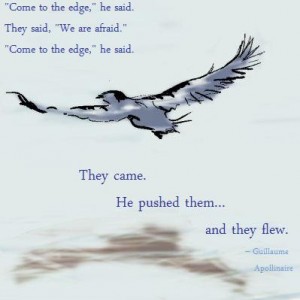I often awake in the middle of the night, or first thing in the morning, with my brain ablaze with new ideas about how to advance a piece I’m working on. Tick-tock goes the clock. Snore, snore, and snore some more. And pow! I have it—the next step in my story.
The subconscious mind works even as our bodies rest, a point on which Sarah Maurer elaborates in “Zen & the Science of Effortless Prose,” an article in the May/June 2011 issue of Writer’s Digest.
If you’re a writer, you already know this, of course. Yet the point of the article by Ms. Maurer is not just to explain that it happens, but to encourage all of us to promote the process—to feed it. If you’re willing to plant a seed, and then walk away from it, the seed may well take root when you least expect. Such as when you’re sleeping, as it does with me.
Those writers who claim to work “on the clock” fascinate me. They punch in at 8:00 am, for example, and write until noon, and then move on to other pursuits. It amazes me because, no matter how determined I may be, I cannot pull that off. For me, writing requires a flash of inspiration. I may be able to prod it a bit, but just as often, I’ll end up staring at the screen—soon distracted and on to other things.
On the other hand, when an idea hits me, an itching, burning need to sit at the computer and punch out the story, I may end up writing for hours. 1,500 words? Easy. 2,000 words? Probably. 3,000 words? Occasionally. 5,000 words? It happens.
What fascinates me most is how often I start that process fresh from bed, with my brain on fire after doing so much of the heavy lifting while I slept.
Thank you, brain.
Returning to the Writer’s Digest article by Sarah Maurer, she and her interviewees offer suggestions on how to promote that process. Read it. Take the suggestions (indeed, take the entire premise) to heart. It works, and you must take advantage of every opportunity.
The brain remains the last frontier in human physiology. Be bold, and explore just a fraction more of what it offers.
As you prepare to settle down for the night, think about your novel/memoir/short story/poem/article. What has held you up? What is it that needs fixing? Focus not on the solutions, but the problems.
Then, lie down. Go to sleep. You’ve planted the seed. Now let your brain do the hard work while you rest.
‘Til next time, and as always, remember: To write well, you must work hard. To succeed in this tough gig, you mustn’t be lazy (or discouraged).





Please follow me here: